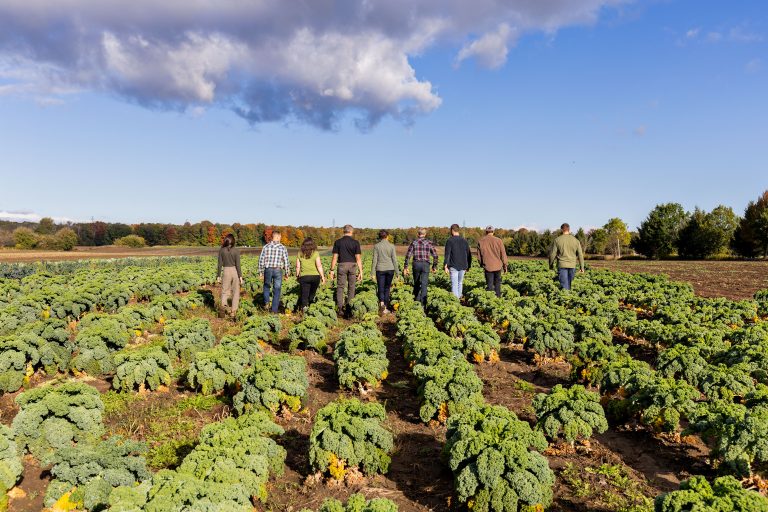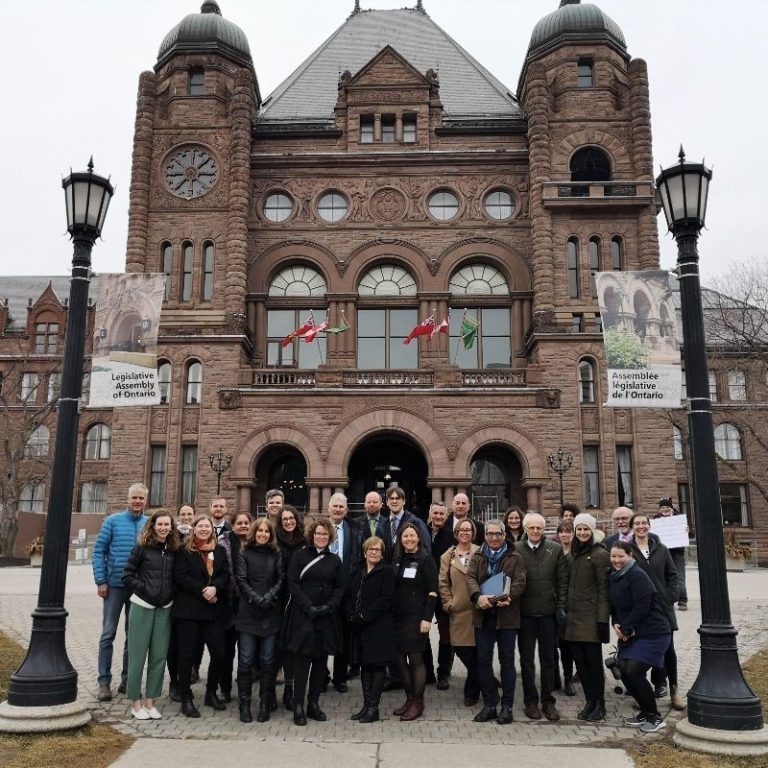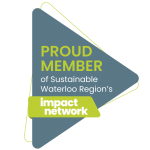On Thursday, March 24, Jenn, Ekk and myself drove very carefully on super icy roads to Guelph, Ontario to attend the Organic Council of Ontario’s Annual General Meeting (AGM). Even though we’ve had a mild winter, the ice storm that blew through the night before reminded us that winter was not through with us yet! But despite the weather it was a good turn-out at the AMG, even if people were slow to trickle in, we were happy they arrived safely.
The importance of this AGM could not be understated.
When OCO first began it’s work advocating on behalf of the organic sector in Ontario, it’s core funding came from the provincial government. In a climate of government cutbacks this funding stopped being offered a number of years ago. Since then OCO has tried to maintain it’s activities through increased membership dollars, fundraising and grants.
For various reasons these funding strategies are much more precarious and unsustainable.
Other jurisdictions across North America have also been struggling with these types of funding models to sustain their sector advocates. A new vision is needed in order to fund the important activities these organizations provide. Advocacy & policy development, and research & market promotion, are just a few examples of the work mandated to OCO which benefits the whole organic sector, from farm to plate as the saying goes.
This year’s AGM had a strong focus to discuss the opportunities and challenges to developing new funding strategies.
One of the more publicized strategies is the US GRO Organic program, which is currently moving through the US regulatory process. OCO invited Marni Karlin from the Organic Trade Association to Skype into the AGM to explain the program. She talked about how the program came to be developed, where it’s at in the regulatory/political process, and what they hope for the program moving into the future.
Between other programs developed in Quebec, the prairies, and private companies – such as the one Pfenning’s has developed with our own customers and suppliers (a BIG thank you to all who participate in that!) – we have some good models we can research to find a solution for Ontario’s organic sector.
OCO is developing a working group – of which I will be participating on behalf of Pfenning’s – to research these models. Carolyn Young has been working on this project, and pending the results of the GF2 application submitted in March, we hope to be starting this work soon.
After Marni’s presentation we held a discussion group format where organic stakeholders digested the information together, and posed new questions for the working group to consider for our own Ontario and Canadian regulatory context. This discussion moved into the delicious lunch that was provided thanks to generous donations from Ontario organic businesses.
After lunch we heard a presentation from Ted Zettel on the updates to the new Canadian Organic Regulations, which were published in November 2015. The weight of this discussion was not lost on the crowd after the morning’s discussion – the work to maintain our organic standard is important for the sustainability of the entire organic sector and this work is not free.
We need a professional representative body, an association that is our organic representative on all issues, everywhere, all the time.
After Ted’s presentation we heard an update on the topic of an Ontario Organic regulation. An Ontario Organic regulation would cover the products sold within the province of origin – Ontario.
Not having a provincial regulation has created a regulatory loophole and little oversight of people calling their products ‘organic’ without actually following the Canadian Organic Standards, thereby creating unfair competitive playing fields for organic stakeholders in Ontario.
In OCO’s mandate of policy development, an Ontario Organic regulation is an important piece of work. Other provinces have provincial regulations, and we think it’s shocking that 7 years after the establishment of a Canadian regulation, Canada’s most populace province is still lacking it’s own regulatory framework on organic products produced and sold within the province.
The last two hours of the day were filled with the business of OCO – the treasurer’s report, the new budget, and voting in new members of the Board of Directors. We are very grateful for the hard work of those board members of the past and are excited to see a new roster of volunteers elected to carry OCO’s work forward. We wish the new Board of Directors all the best in the coming year.
Stay tuned for more updates from Pfenning’s on the progress of the working group. If you would like to participate or find out more information about OCO, please visit their website.









